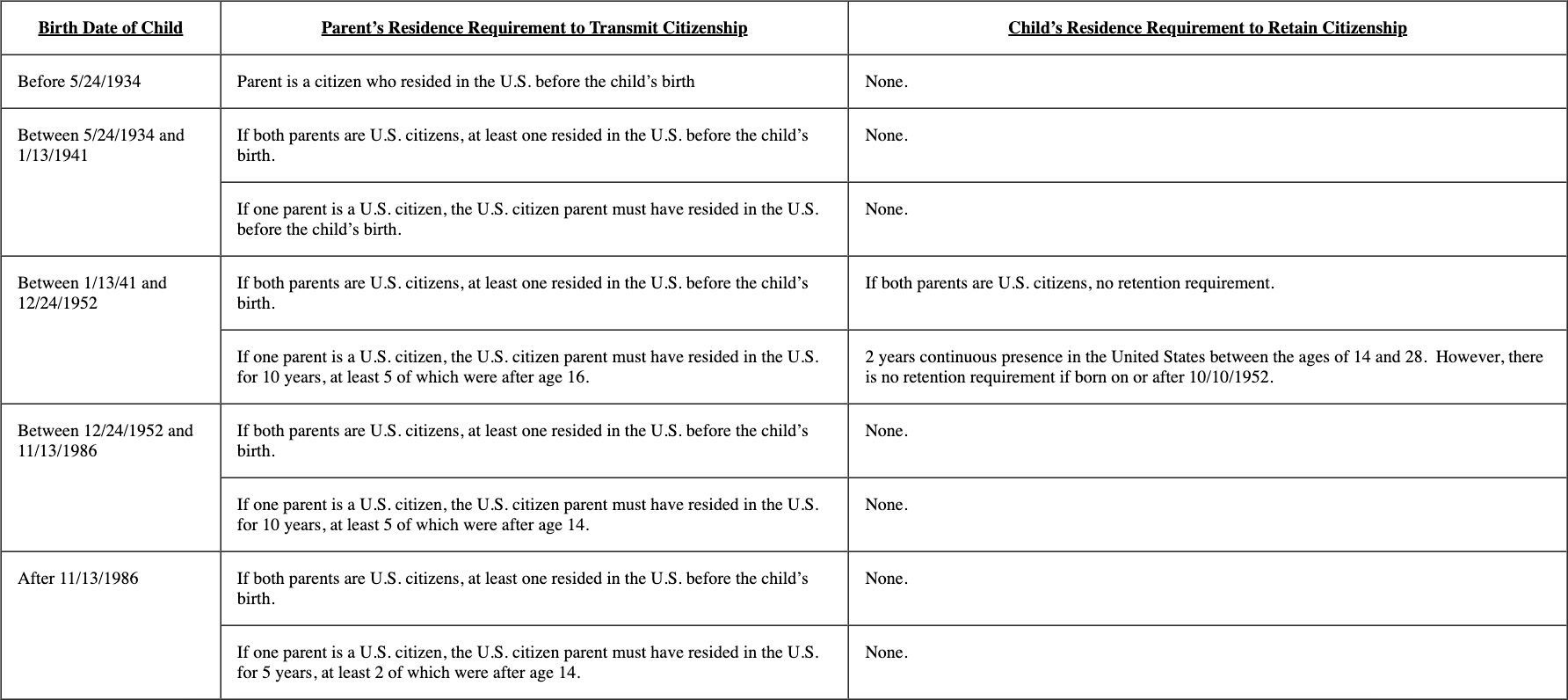Derivative Citizenship
Generally, people are born U.S. citizens if they are born in the United States or
if they are born to U.S. citizens

For more than 30 years our immigration law office has been providing assistance for people desiring to become US citizens. This article explains how and when a person is automatically a US citizen. This is called derivative citizenship as opposed to becoming a US citizen through naturalization.
1. By being born in the United States
If you were born in the United States (including, in most cases, Puerto Rico, Guam, and the U.S. Virgin Islands), you are an American citizen at birth (unless you were born to a foreign diplomat). Your birth certificate is proof of your citizenship.
2. Through birth abroad to TWO US citizens
In most cases, you are a U.S. citizen if ALL of the following are true:
bullet Both your parents were U.S. citizens when you were born; and
At least one of your parents lived in the United States at some point in their life.
Your record of birth abroad, if registered with a U.S. consulate or embassy, is proof of your citizenship.
You may also apply for a passport to have your citizenship recognized. If you need additional proof of your citizenship, you may file an "Application for Certificate of Citizenship" (Form N-600) with USCIS to get a Certificate of Citizenship.
- Form N-600K
- Instructions for Form N-600K
- Form G-1145, E-Notification of Application/Petition Acceptance
3. Through birth abroad to ONE United States citizen
In most cases, you are a U.S. citizen if ALL of the following are true:
- One of your parents was a U.S. citizen when you were born; and
- Your citizen parent lived at least 5 years in the United States before you were born; and
- At least 2 of these 5 years in the United States were after your citizen parent's 14th birthday*.
Your record of birth abroad, if registered with a U.S. consulate or embassy, is proof of your citizenship.
*If you were born before November 14, 1986, you are a citizen if your U.S. citizen parent lived in the United States for at least 10 years and 5 of those years in the United States were after your citizen parent's 14th birthday.
4. By Qualifying under the Child Citizenship Act 2000
On October 30, 2000, President Clinton signed into law H.R. 2883, the Child Citizenship Act of 2000.
CHART TO DETERMINE CITIZENSHIP RULES
The following chart describes the rules for a U.S. citizen parent transmitting citizenship to a child born in a foreign country:

Expedited Naturalization if Grandparent was U.S. Citizen
If a child is born in a foreign country and the parents do not meet these requirements, there are some special provisions for “expeditious naturalization” if a grandparent was a U.S. citizen, and had resided in the United States for at least 5 years, at least 2 years after the age of 14. This expedited naturalization process must be completed before the child turns 18.
